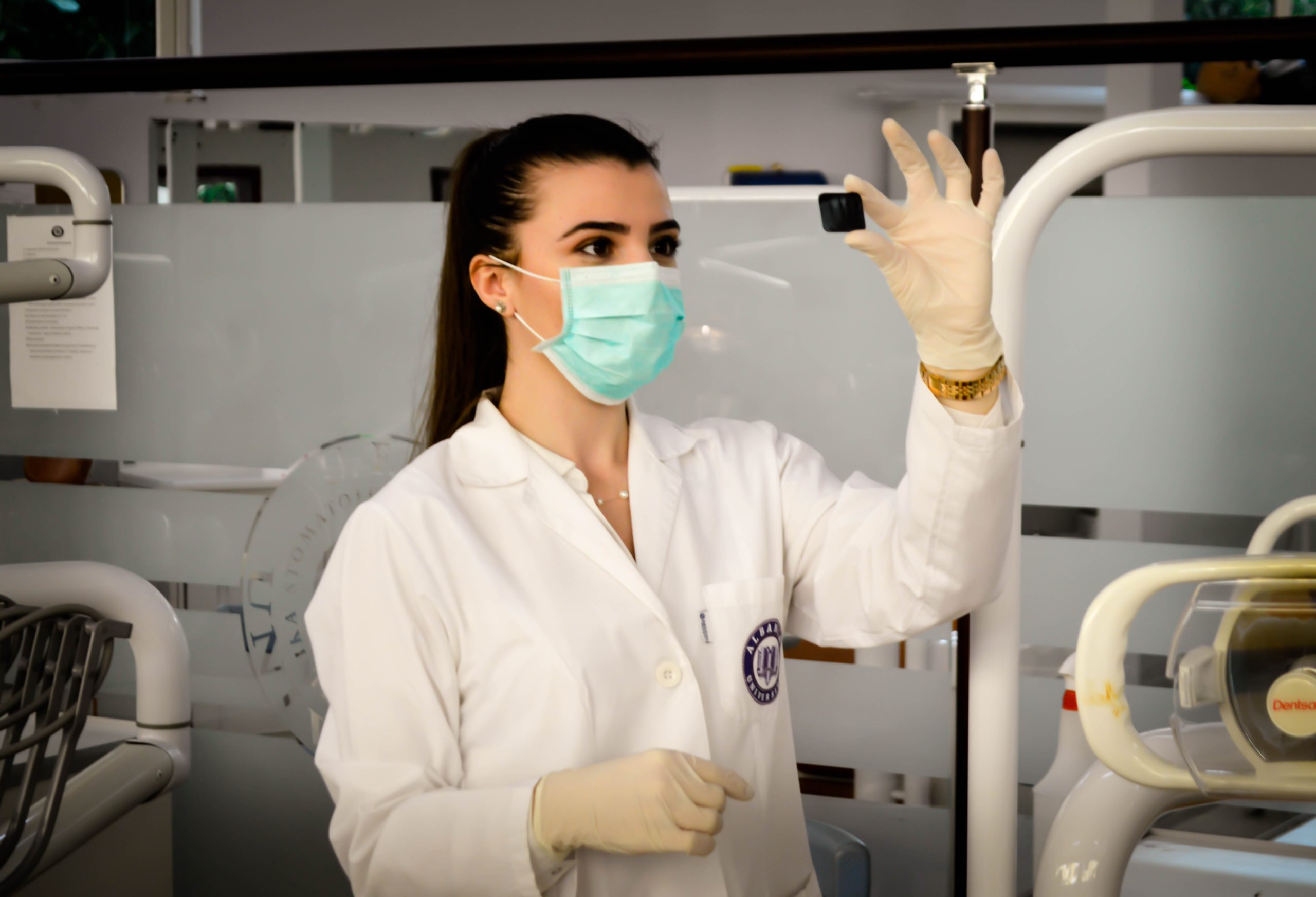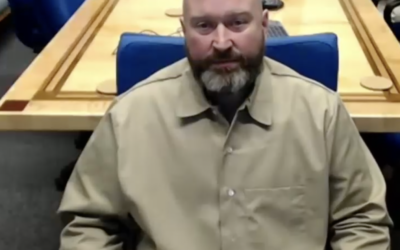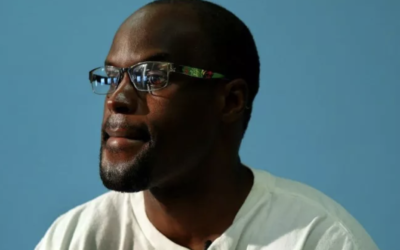Hate medicine….
We watched him dying. Everyone on our wing had their own diagnosis.
“Cirrhosis.”
“It’s jaundice. Look at how yellow he is.”
“How can you tell? He’s hispanic.”
“Next time you get close to him, look at his eyes. They are yellow.”
“I bet he has liver cancer. Look at how skinny he’s gotten. If he weighs a hundred pounds I’d be surprised.”
Several of us wrote requests to medical. “You really must help this man.” Somebody took a guard quietly to the side of the dayroom after our requests went unanswered.
“You see that guy standing on the wall next to 101 cell?”
“Sure.”
“He’s dying. When you do an in and out, take a close look at him. He never goes to chow, his celly says he has chronic diarrhea. Somebody has got to do something for him. Medical is ignoring us.”
At first, our attentions were discreet. But later we openly made pests of ourselves, asking him daily if he needed help, if he was feeling okay. His stoic refusals led us to believe he was committing an agonizingly slow suicide. Finally, medical responded, though we were certain it was too late. He refused treatment time and time again. To the Warden’s credit (how word reached him nobody is sure), when he saw the man in the infirmary, he was having none of their official resignation.
“What are you doing for this man?”
“Nothing. He’s refusing treatment.”
“Oh, hell no! He’s going to the hospital. Now!”
That was the last we saw of him. We’ve heard nothing since about whether he lived or died but we kept him in our prayers.
It’s probably like this in other states but certainly in Texas, the prison system is loathe to even hint that they employ people who care about inmates. Thus, every nurse station is labeled an ‘infirmary,’ every form requesting medical care is a ‘sick call,’ and you pick up your medication at the ‘pill window.’ Outside. Rain, snow, sleet, or shine.
To say that prisons do a poor job of delivering health care is a gross understatement. Prison Legal News has been at the forefront of reporting and litigation on behalf of inmates who’ve suffered medical malpractice. You can find, in their archives, article upon article describing lawsuits against prisons which have neglected inmates to the point of serious injury and death. In many cases, suffering could have easily been prevented.
A libertarian-minded person might argue that government hires the least qualified since they pay below-market labor rates; look at the VA for instance. There may be some truth in that. Yet, incompetence alone can’t account for such widespread malpractice. Diseases that are routinely vanquished outside prisons are rampant and life-threatening inside them. When is the last time you heard of someone dying of a staph infection or sepsis in a hospital? It happens rarely because staph and sepsis rarely go unrecognized or untreated. In prison?
“Here’s an Ibuprofen. Go back to your cell.”
And that is after one has waited up to 72 hours for the infirmary to respond to your sick call request.
This indifference isn’t because medical staff are incompetent but because they’re trained to be belligerent. That sounds like hyperbole, doesn’t it? it’s not.
Not all belligerence leads to injury or death. Most refusals to provide care merely result in dramatic cost savings. Let’s face it, garden variety colds and flus resolve themselves. Nobody dies. They’re uncomfortable is all. Inmates will be forced to work anyway, threatened with disciplinary hearings which can jeopardize parole chances, a win-win for prison wardens.
Not all malpractice results in legal action. Very few inmates have the resources to litigate a malpractice suit.
An inmate on my unit, we’ll call him Bob, was diagnosed with brain cancer his last time down. He was given an emergency parole but was convicted of another DUI and sent back to prison. After arriving, he was transferred to the Mumford Unit to have his tumor removed. The surgery required that doctors cut away a piece of Bob’s skull. Once his tumor was removed, the piece of bone that had been cut away was fastened back to his skull using four screws and two metal plates.
About five months ago, Bob showed me a two-inch piece of bone that had pushed itself through a wound in his scalp. Also pushed out of his scalp was a titanium screw. Alarming to say the least. Bob put in a sick call request and the nurse was concerned enough to schedule a trip to the neurologist.
Going to see a medical specialist in a Texas prison is an ordeal. TDCJ does not have the resources to employ specialists at every unit. Depending on the type of specialist, an inmate might have to be transported hundreds of miles by bus, cuffed to another prisoner. In the worst case, you’re chained, shackled and hog-tied. Prior to travel, you’re required to pack all of your property and inventory it. Then at 6 AM, you’re taken to a holding cell where you can wait up to four hours for the bus to arrive.
Bob was shackled and hog-tied on his trip to the neurologist. Not once, not twice, but three times was he sent, each trip excruciating and humiliating. On the third trip he was able to converse with the specialist.
“Bob, I have good news and bad news.”
“Okay, what’s the good news?”
“The good news is you’re cancer-free. Your MRIs are negative. No sign of cancer at all.”
“That is good news! What’s the bad news?”
“We can’t see any sign of missing bone, nor can we find any of the screws we used to re-attach the piece we cut out during your surgery.”
“Wait, what?”
“They aren’t showing up. I can’t explain it really.”
Bob literally has three screws loose in his head somewhere. Unless he lodges a serious complaint, the medical professionals obligated to care for him have officially washed their hands of him.
Perhaps you’re still not convinced that belligerence is cultivated. TDCJ contracts its medical care to a corporation called UTMB* Correctional Managed Care, at several of its units. Outsourcing indemnifies it from medical malpractice lawsuits. It also jeopardizes its reputation for being tough on inmates by using a company that has the word ‘care’ in its name.
Another inmate at this unit is suing TDCJ and UTMB for injuring him and neglecting to treat his injury, namely a separated shoulder caused by an officer’s assault. The suit went to trial (Charles R. Adams v. Lieutenant Bailey, et al., – Civil Action No. H:12-CV-02520). The transcript of the trial contains UTMB’s admission of professional belligerence towards inmates.
Dr. Erin Jones, who interned as a psychiatrist and has not even one hour of experience in osteopathy, was called as an expert witness by UTMB’s lawyers. In spite of her lack of experience, she was allowed to give testimony on Adams’ shoulder condition. More interesting was the beginning of her testimony on behalf of the defense.
Q: Then when you went to work for UTMB in the correctional managed health care system did you receive any kind of training?
A: Yeah, we had training that’s called NEO.
Q: What is that?
A: New Employee Orientation. And it’s — working in corrections is very different from working in free-world medicine. And so we had to learn —
Q: Explain to us why. What is different about it?
A: Well, there is a lot more patients that want something for secondary gain. There is — basically eighty to ninety percent of our patients are either lying or exaggerating on their symptoms to try to get something. [Treatment, perhaps?]
And then, my job every day — and it’s a challenge — is that I have to find that ten to twenty percent that are really sick and take care of them because they need my help, you know. But then, you know, I don’t want to waste my time on something that’s not real, you know.
There you have it. A UTMB employee admits, under oath, that UTMB trained her to treat up to 90% of her patients as if they are lying. It’s truly absurd for Dr. Jones to complain that her job is so difficult. Imagine coming home from work and reporting that you had a terrible time disregarding 90% of your duties. Whew!
“That ten percent I did was hard but I enjoyed doing it.”
Jones offered no empirical evidence to support the claim that such a high percentage of inmates are lying and I suspect that its because UTMB doesn’t offer any either. Plain, common sense suggests the claim is a fabrication. Texas inmates are charged a $100 annual co-pay for any non-chronic care (even though they are not paid for their work). Chronic care is care for issues such as diabetes, cancer, or pre-existing conditions discovered during prisoner intake. Why would an inmate lie ‘to get something’ when it costs them $100 to do so?
It’s preposterous to conclude this unless you are interested in getting paid for work you refuse to perform. Planned, systemic belligerence. It’s not health care, it’s not medical practice, it’s hate medicine. No amount of honey can make it palatable.
*University of Texas Medical Branch
TDCJ Inmate






0 Comments